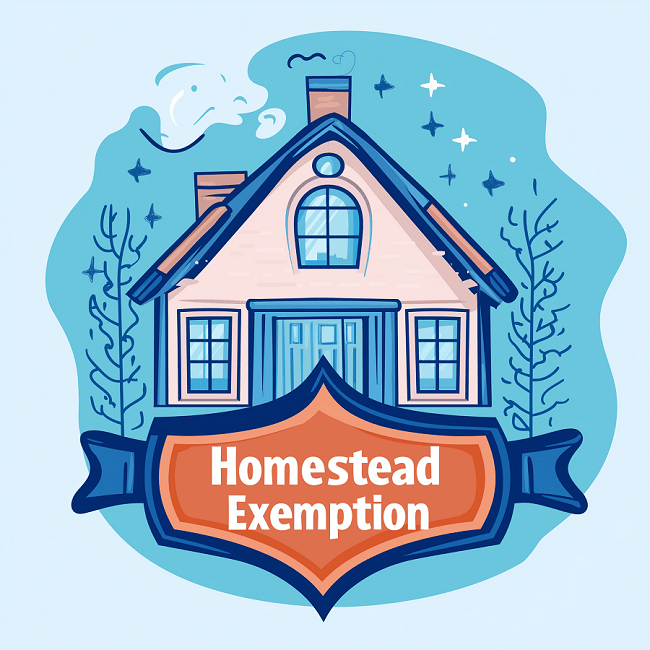If you have ever experienced the mental decline of a loved one, you understand the hopelessness of the situation. On the one hand, you want to help your loved one maintain independence. On the other hand, you know that your loved one is having trouble managing the day-to-day activities of living – like paying bills, maintaining personal hygiene, driving, and resisting fraud and undue influence. So, what can you do?
One option is to seek a conservatorship over the person.
A conservatorship is a probate court proceeding that protects a person who cannot care for his or her own person or property.
This article will outline the 9-Step process to obtaining a conservatorship in the court system.
1/ Is a Conservatorship Needed?
The first step is deciding whether a conservatorship is needed and whether (under the circumstances) you can even petition for a conservatorship.
Is there an existing estate plan?
If the person has engaged in estate planning, his or her plan may already tell you what to do. For example, he or she may have a living trust that appoints a person to manage his or her affairs. They may have a power of attorney or health care directive allowing someone to take over those aspects of their care. For more information about this check out our article titled “7 Affordable Alternatives to a Conservatorship.”
But, if they have no estate plan, or the estate plan was not carefully drafted (because it was purchased from a discount document supplier), then the only option may be to seek a conservatorship.
If there is no existing estate plan, then you need to decide whether the person lacks capacity to a degree sufficient to warrant a conservatorship.
Does the person lack capacity?
The California Probate Code presumes that all persons have capacity to make their own decisions and take responsibility for their own actions.[i] To overcome this presumption you must prove (by clear and convincing evidence) one or both of the following (1) that the person cannot provide for his or her own personal needs; and/or (2) that the person cannot manage his or her financial resources or resist fraud or undue influence.
To prove this, you need to show that the person has a deficit in one of the following mental functions:[ii]
- Alertness or attention:
- Are they alert and conscious?
- Do they know where they are?
- Do they know what year it is, day of the week, time of day?
- Do they know who they are?
- Can they concentrate?
- Information Processing:
- Does their short and long-term memory work?
- Can they immediately recall what just happened or what was just said?
- Can they communicate with others (verbally or nonverbally)?
- Can they understand verbal or nonverbal communication?
- Do they recognize familiar objects, places, and people?
- Can they appreciate quantities?
- Can they use abstract concepts, such as love, evil, goodness, morality, etc.?
- Can they plan and organize their day?
- Can they reason logically?
- Thought Processes:
- Is their thinking disorientated?
- Do they have hallucinations?
- Do they have delusions?
- Do they have uncontrollable, repetitive, or intrusive thoughts?
- Ability to Modulate Mood and Affect:
- Do they show persistent and pervasive euphoria, anger, anxiety, fear, panic, depression, helplessness, indifference; AND
- Are these emotions completely inappropriate in degree to the individual’s circumstances?
If you are like me, you have probably answered “yes” to some of these (even for yourself). Don’t worry, it does not mean that you need a conservator or that you lack capacity. All of us are prone to the occasional deficit in our mental functions. But what makes you lack capacity is whether the deficit by itself or in combination with other deficits “significantly, impairs the person’s ability to understand and appreciate the consequences of his or her actions.”[iii]
This means that the one-off mental lapse or occasional inability to take care of oneself is insufficient to impose a conservatorship. Additionally, the mere diagnosis of a mental or physical disorder does not mean that the person lack capacity. For example, if your parent is diagnosed with dementia, that diagnosis alone does not mean they lack capacity.
Instead, a person lack capacity only when the person suffers from a deficit in mental function, i.e., the answer to any of the above questions is “yes” AND the deficit in mental function also “significantly, impairs the person’s ability to understand and appreciate the consequences of his or her actions.”
Can the person resist undue influence or fraud?
Even if the person does not “lack capacity” as defined above, a conservatorship may be appropriate if they are unable to resist undue influence or fraud.[iv] Sometimes a person is perfectly capable of managing his or her day-to-day activities and can appreciate the consequences of his or her actions, but nevertheless cannot resist undue influence of fraud.
For example, you may start to notice that your dad is suddenly giving large sums of money to his nurse or significantly younger “girlfriend.” You may notice you mom is starting to make a lot of inexplicable purchases from telemarketers. Your parents may have fallen victim to phone or email scams – after all, the “Nigerian Prince” promised to pay them back double what they paid.
In these kinds of circumstances, a conservatorship may be appropriate.
2/ Judicial Council Forms
If you have decided that a conservatorship is appropriate, then you need to file a petition in the probate court. The Judicial Council of California has mandatory from that you must use. They can be located HERE.
Here is a list of the judicial council form you need to use (if appropriate to your case):
- Certification of Attorney Concerning Qualifications for Court Appointment in Conservatorships (Judicial Council Form GC-010);
- Notice of Hearing (Judicial Council Form GC-020);
- Order Dispensing With Notice (Judicial Council Form GC-021);
- Order Prescribing Notice (Judicial Council Form GC-022, DE-200);
- Request for Special Notice (DE-154);
- Petition for Appointment of Probate Conservator (Judicial Council Form GC-310);
- Confidential Supplemental Information (Judicial Council Form GC-312);
- Attachment Requesting Special Orders Regarding a Major Neurocognitive Disorder (Judicial Council Form GC-313);
- Confidential Conservator Screening Form (Judicial Council Form GC-314);
- Citation for Conservatorship (Judicial Council Form GC-320);
- Order Appointing Court Investigator—Conservatorship (Judicial Council Form GC-330);
- Capacity Declaration—Conservatorship (Judicial Council Form GC-335);
- Attachment to Form GC-335, Capacity Declaration—Conservatorship, Only for (Proposed) Conservatee With a Major Neurocognitive Disorder (Judicial Council Form GC-335A);
- Ex Parte Application for Order Authorizing Completion of Capacity Declaration-HIPAA (Judicial Council Form GC-333);
- Ex Parte Order Re Completion of Capacity Declaration-HIPAA (Judicial Council Form GC-334);
- Order Appointing Probate Conservator (Judicial Council Form GC-340);
- Notice of Conservatee’s Rights (Judicial Council Form GC-341);
- Attachment to Notice of Conservatee’s Rights (Judicial Council Form GC-341(MA));
- Duties of Conservator and Acknowledgment of Receipt of Handbook (Judicial Council Form GC-348);
- Letters of Conservatorship (Judicial Council Form GC-350);
- Petition for Exclusive Authority to Give Consent for Medical Treatment (Judicial Council Form GC-380);
- Order Authorizing Conservator to Give Consent for Medical Treatment (Judicial Council Form GC-385);
- Request to Waive Court Fees (Judicial Council Form FW-001-GC);
- Order on Court Fee Waiver (Judicial Council Form FW-003-GC);
- Application for Appointment of Counsel (Judicial Council Form GC-005); and
- Order Appointing Legal Counsel (Judicial Council Form GC-006).
In addition to the above forms, each county court may have its own “local forms” which may or may not be mandatory. If the local form says that it is “adopted” it means that it is mandatory, and you must use it. If it says that it is merely “approved” then it is a form that you can use if you want. Generally, if there is a local form use it – even if it is only optional.
3/ Gather Information Needed.
The next step in the process is to gather all of the information needed to fill out the judicial council forms so that you can make your case to the court. One of the first decisions that needs to be made is “who will the proposed conservator be?” In most cases, a conservator must qualify and obtain a Bond before being appointed as a conservator. The bond protects the conservative (the person who is being protected by the conservatorship).
At the earliest you need to decide whether the proposed conservator can qualify for the bond. If he or she can’t then the court will; not appoint them. So, does your proposed conservator have bad credit? Has the proposed conservator ever filed for bankruptcy? Has the proposed conservator ever been convicted of any kind of crime (felony or misdemeanor)? If the answer to these questions is “yes” then you may need to re-think who you want to propose as the conservator.
One of the major issues many petitioners come across during the information gathering stage is finding addresses for all relatives of the second degree. The probate code requires that any relative of the proposed conservative (up to the second degree) be given written notice of the petition for conservatorship. This allows them to file any objections. Therefore, the court will need to know the names, addresses, and relationships of all relatives up to the second degree.[v]
That means you will need the names and addresses of the proposed conservatee’s spouse, children, mother, father, brothers, sisters, grandparents, aunts, uncles, nieces, and nephews.
In addition to that, you will need to get information about the proposed conservatee’s assets, property owned, and medical records or reports (if available).
4/ Prepare the Individual Forms
There are 5 initial forms you will need to file.
- Petition for Appointment of Probate Conservator (Form GC-310)
- Confidential Supplemental Information (Form GC-312)
- Confidential Conservator Screening Form (Form GC-314)
- Citation for Conservatorship (Form GC- 320)
- Capacity Declaration (Form GC-335)
The Petition is public record (meaning anyone can request to see a copy from the Court). The Confidential Supplement and Confidential Screening Form are both, you guessed it, confidential. That means only court staff (or possibly other people who need the information, like third parties that court works with) will see the information on the form.
As you will see, the forms require a lot of detail, which is why it is important to gather a lot of information beforehand. It is completely natural to feel overwhelmed, and you may need to gather even more information after looking at the forms themselves. But it is really important to make sure they are filled out and made as complete as possible, otherwise, your petition may get rejected and your case may be delayed.
To file the Petition there is a filing fee (usually around $495). If you cannot afford that cost, there is a waiver form available. It is called: Request to Waive Court Fees (FW-001-GC).
5/ Give Notice
When your petition is filed the court clerk will set your matter for a hearing date. When you you’re your Petition you will also submit the “Citation for Conservatorship.” You fill out a portion of the Citation for Conservatorship and the court clerk fills out the rest. After the Petition is filed you will receive a “Citation for Conservatorship” which will tell the proposed conservatee when the hearing is.
You will need to draft and serve the Notice of Hearing at least 15-days prior to the hearing date.[vi] It will need to be served on all family members listed in the Petition as well as the proposed conservatee (when in doubt just serve the Notice). You will also fill out the “Proof of Service” on the back of the Notice form (GC-020). Once you mail the Notice to everyone, you will need to file the Notice with the Court – to prove that the Notice was sent.
***If you do not file the notice and proof of service with the court, or you do not mail the Notice at least 15-days before the hearing, the Court will continue the hearing and you will need to re-mail everything.
***Important*** Although you CAN mail notice to everyone in the Petition (family members), you CANNOT simply mail the notice to the proposed conservatee. Instead, you will need to personally serve him or her. Alternatively, you can serve him or her by mail with a notice and acknowledgement, but with the limited time period, it is best to serve the Citation personally.
Remember that there is NO EXCEPTION for the service requirement. A conservatorship takes away very important constitutional rights. Therefore, the 5th Amendment to the Constitution mandates that the proposed conservatee receive “due process,” which at a minimum requires notice.
Of course, this can lead to some silly results when it come to proposed conservatees who are comatose or otherwise cannot read or communicate. In those situations, the process server will need to verify the identify of the person (through medical staff or family members) and can leave the materials at the bedside or give the papers to the proposed conservatee (if able to receive them).
I’ve sat in the probate courts during conservatorship proceedings where cases get continued for “lack of notice” family members do their best to convince the judge that the proposed conservatee cannot understand, but it never works. Do not assume that you are exempt just because the proposed conservatee is unable to understand what is going on.
6/ Court Investigation for Conservatorship Citation.
Unless the proposed conservatee is the petitioner or has nominated the proposed conservator and will attend the hearing, the court will appoint a person to investigate.[vii] You will need to initiate this process by filing the “Order Appointing Court Investigator” (Form GC-330). The court investigator will meet with the proposed conservatee and conduct a personal interview.
During the interview the court investigator will inform the proposed conservatee of his or her rights (including the proposed conservatee’s ability to attend the hearings and contest the appointment). The investigator will also attempt to learn whether the proposed conservatee agrees with the appointment.
After the meeting with the proposed conservatee the investigator will file a report with the court (in some counties you may need to file a report as well). The report becomes part of the court file but can only be viewed by the parties to the case, court staff, family members, and anyone else who has “appeared” in the matter. In other words, it is not able to be accessed by general members of the public.
In addition, if the proposed conservatee has developmental disabilities he or she may need to be seen by the Regional Center and the Regional Center will need to report to the court.
7/ The Proposed Conservatee Is Appointed an Independent Attorney
In some cases, the court is required to appoint an independent attorney to represent the proposed conservatee. The cases where a court appointed attorney is required are:
- Situation where the proposed conservator is the spouse, and the spouse and the proposed conservatee are going through a divorce.[viii]
- When the petition requests powers to place the conservatee in a secured-perimeter residential care facility or a locked and secured nursing facility.[ix]
- When the Petition requests powers to administer medication for the treatment of a neurocognitive disorder.
In other cases, the court may appoint an independent attorney if the court determines that an independent attorney “would be helpful to the resolution of the matter or is necessary to protect the interests of the conservatee or proposed conservatee.”[x] I usually tell client to assume that an independent attorney is going to be appointed.
The court appointed attorney will meet with the proposed conservatee and report back to the court regarding whether the proposed conservatorship is in the best interests of the proposed conservatee.
8/ Attend the Hearing
The hearing is the most important part of the Petition. It cannot proceed until every step above is completed, and the court receives all of the reports mentioned above. Moreover, the court will need time to review all of the reports. So, if a report or document is filed less than 5-court days before the hearing, the hearing will likely be continued. Hearings are frequently continued because (1) notice was not given or not given within the required time; and/or (2) the court is waiting on information.
Attendance at the hearing is mandatory. Both the proposed conservator and the proposed conservatee must attend the hearing. But in some cases, the court will excuse the proposed conservatee if the proposed conservatee:
- Is out of state when served with the citation (remember “citation” is not a bad thing it is just the Citation for Conservatorship);
- Medically unable to attend;
- Unwilling to attend AND (i) does not contest the conservatorship; (ii) does not object to the proposed conservator; and (iii) does not prefer another person be appointed conservator.
- Is an absentee; or
- Is a “missing person” under Probate Code § 1845 (missing person just means that the whereabouts of the person are unknown, not that the person is a “missing person” in a police report sense).
At the hearing, the petitioner will be required to prove that the proposed conservatee is “unable to provide properly for his or her personal needs for physical health, food, clothing, or shelter” and/or that the proposed conservatee “is substantially unable to manage his or her own financial resources or resist fraud or undue influence.”[xi]
If the hearing is contested be sure to bring with you witnesses who can attest to facts and circumstances they have personally observed which would support your position that a conservatorship be granted.
9/ Appointment as Conservator
Your appointment as conservator begins with two documents. The “Order Appointing Probate Conservator” (Form GC-340) and “Letters of Judicial Conservatorship” (Form GC-350).
The first thing that the court will be is issue an order appointing a conservator. But that DOES NOT mean that the person appointed has control, yet. The conservator only has control after the Letters of Judicial Conservatorship have issued. To get the Letters you will need to qualify for bond (if required) and submit a Form attesting that you understand the duties of a conservator and have received the “Handbook for Conservators” (Form GC-348). Once the court receives those documents, the “Letters” will issue.
Be sure to get a few “certified” copies of the Letters. If you have a full conservatorship, you will need to record the Letters with the County Recorder for each County where the conservatee owns real property. Additionally, banks and other financial institutions will need copies of the Letters. So, you will need a few certified copies.
Final Thoughts About Conservatorships
Obtaining a conservatorship is tough. Every person has constitutional freedoms, which a conservatorship takes away. So, the court does not grant a conservatorship lightly. The procedures in place to obtain a conservatorship often feel exhausting. Petitioners often feel like they have to jump through “too many hoops.” But the 5th Amendment to the Constitution requires these “hoops” to ensure that the conservatee is given due process under the 5th Amendment.
Additionally, if an attorney was appointed by the court, the conservatee will have to pay a “reasonable fee” ordered by the court at the end of the case. If the proposed conservatee does not have sufficient funds, then sometimes the fee is waived.
If you or anyone you know may need a conservatorship, feel free to reach out to us for a free 15-minute consultation to see if a conservatorship is right for you and your family. You can schedule your free consultation by clicking here, or by calling (951) 228-9979 or (949) 464-4483.
[iii] Probate Code § 811(b)
[ix] Probate Code § 2365.5(f)(1)
[xi] Probate Code § 1801.




